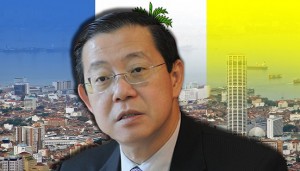Guan Eng’s failed gamble

The Penang government had better re-examine its priorities if it wants to prevent BN from making inroads in the state.
Scott Ng, Free Malaysia Today
It is puzzling that DAP should cite disagreement over seat allocation as the reason for its decision to drop the idea of a snap election in Penang.
After all, only members of the Pakatan Harapan coalition need to be considered. PAS has long been a thorn in the side of the state administration, and an election would have afforded the opportunity to remove its influence and install Amanah as the leading Malay face in Penang. And surely PKR is cognisant enough of DAP’s ability to hold Penang and will not be unreasonable in demanding seats, knowing that the party has the passionate support of the Chinese majority.
Much like the various stories given to deny that the call for the snap election was to puff up Chief Minister Lim Guan Eng’s position ahead of his trial, this excuse makes little sense when one considers the political landscape. Of course, to paraphrase a Malaysian proverb, the still surface could very well hide the danger that DAP forgot to consider when it proposed the election. With some analysts predicting that BN would make inroads, it seems more likely that the idea was subsequently thought through and common sense saved the day.
The infamous political commentator Lim Sian See has quite a few things to say about Penang’s reported economic figures upon which Guan Eng’s government crows its success. On his blog, he lists examples of allegedly misleading DAP propaganda, the most serious being the claim that the state government had reduced Penang’s debt by an astonishing RM600 million or so. Sian See said the debt was merely reconfigured so that it could be paid off over time instead of being owed all at once, allowing Guan Eng to claim lower debt figures. Hence, the debt is not reduced. The same amount still has to be settled, but the repayment is spread out to make it manageable.
That in itself is a smart move considering that it gives Penang elbow room in its budgeting, but the facts have allegedly been misrepresented to make them attractive to the target audience.
Sian See’s other claims warrant investigation as well, including his astonishing statement that Penang has actually underperformed economically compared to the rest of the country. If these claims are indeed irrefutable, then it is clear that Guan Eng’s government has been so obsessed with maintaining its power that it has stooped to deception.
Regardless, it is time for the Penang government to refocus its work on serving the people. It is clear that there is division in Penang, and not just in the state assembly. Guan Eng would do well to discard his aloof manner and start engaging with the common people – the fishermen who claim his policies are destroying their livelihood, and the villagers crying out for some kind of action to save their homes from being bulldozed over.

